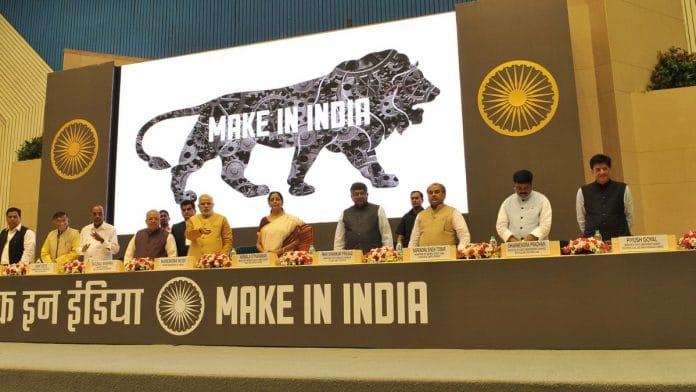New Delhi: In what may be a dampener to its ambition to become a Vishwaguru, India may not become a superpower even in Asia at its current pace, according to Susannah Patton, the Southeast Asia Program director of Australia-based think-tank, Lowy Institute.
As to when India would start improving its scores and influence in Asia, she said, “That’s a very difficult question, because the trend that we have seen is not necessarily that India’s score is increasing. In some cases, the gap between both India and Japan (on one hand) and China and the United States on the other hand is growing,” Patton told ThePrint in a special broadcast Thursday.
Lowy Institute’s Asia Power Index report 2023 earlier this month has highlighted how India’s weak economic relationships were behind its relatively weak influence in Asia.
Patton said that given its current pace, India’s journey to become a superpower in the region may not happen anytime soon. “On its current trajectory, we would not really expect India necessarily to ever establish itself as a superpower. Given that the gap is so great, it’s hard to imagine that that would happen anytime soon,” she added.
India maintained its fourth rank in the 2023 report, with an overall score of just 36.3 (which is also moving downwards) — nearly half of 70, the score needed to be a superpower in the index out of a maximum 100.
Also Read: Pakistan in no shape to fix its economy. Currency crisis adding pressure on dollar reserves
Why India scores low on economic influence
The Asia Power Index is based on eight broad parameters spanning around 133 indicators. India scores pretty well in diplomatic influence, but this is not converting into economic gains.
It scored 65.8 in diplomatic influence, but despite that, its score in economic relationships was just 15.4 out of 100. China, on the other hand, scored a 98.3 in the economic influence category.
Patton explained about why India tends to have weaker economic relationships in the region. “I think it is just the structure of India’s economy. India is not as integrated into supply chains with the countries of East Asia as other economies that we include in the index are,” she said.
Elaborating on how India’s economy differs, Patton added, “India’s focus tends to be more on internal demand rather than export-led growth. So that has an impact on its economic relationships with the rest of Asia. I guess, added to that is the fact that India is also not a part of the major regional trade groups like the Regional Comprehensive Economic Partnership (RCEP) or the Trans-Pacific Partnership (TPP), which we include in the index under our economic diplomacy category.”
“I think the other point that’s important to make about India’s economic relationships is that its influence tends to be quite concentrated in South Asia, which is, of course, to be expected that India’s influence would primarily be in neighbouring countries such as Sri Lanka, Nepal, Bangladesh, but the power index is much broader. And so, they were talking about measuring India’s relationships with countries such as Indonesia or Vietnam as well and the report also mentions that the lack of foreign trade agreements, both local and international, is somehow influencing this particular parameter as well,” she explained.
“It also depends on certain value judgements about what the importance of these agreements might be because some of the feedback that I’ve seen to the Asia Power Index from commentators in India has said, for example, that actually India is stronger because it’s not a part of the regional comprehensive economic partnership along with China. So that’s a different perspective on this question according to the way that the index is structured. It is considered to be a positive to be a part of regional trade and economic arrangements,” she concluded.
(Edited by Smriti Sinha)






